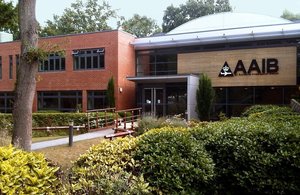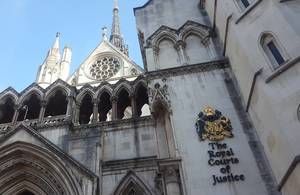Visitors from around the UK and across the world will be travelling to take part in the Birmingham 2022 Commonwealth Games from 28 July to 8 August.
Advice for hot weather
Stay hydrated, drink plenty of fluids and avoid excess alcohol.
If you need to travel, make sure you take water with you.
Avoid extreme physical exertion. If you can’t avoid strenuous outdoor activity, try to keep it for cooler parts of the day, for example in the early morning or evening.
Seek shade during the hottest parts of the day, especially from 11am to 3pm, when UV radiation is strongest.
If you go out in the heat :
- wear UV sunglasses (preferably wraparound)
- apply sunscreen of at least SPF15 with UVA protection
- wear a wide-brimmed hat and light, loose-fitting cotton clothes
On car journeys, ensure babies, children or older people are not left alone in parked cars, which can quickly overheat.
If you feel dizzy, weak or have intense thirst and a headache, move to a cool place as soon as possible and drink some water or diluted fruit juice.
If you have painful muscular spasms (particularly in the legs, arms or abdomen) rest in a cool place and drink electrolyte drinks. If you don’t start to recover within 30 minutes, call 111.
Call 999 if a person develops any signs of heatstroke, as this is a medical emergency.
Symptoms are:
- feeling unwell (after 30 minutes resting in a cool place and drinking plenty of water)
- not sweating even while feeling too hot
- a high temperature of 40oC or above
- fast breathing or shortness of breath
- feeling confused
- a fit (seizure)
- loss of consciousness
- being unresponsive
Advice to prevent transfer of stomach bugs
Stay at home if you have any symptoms of diarrhoea or vomiting.
Don’t go to work or school or mix outside until 48 hours clear of symptoms.
Stay hydrated.
Wash hands regularly and thoroughly in soap and water, especially after visiting the toilet or before preparing food.
Try not to prepare food for others while infectious.
In any areas where a person has had an episode of illness, use a bleach-based cleaning fluid to clean any surfaces.
Boil wash any laundry soiled during an episode of illness.
Advice for safe sex
Use condoms, especially with a new partner.
Get tested if you’ve had unprotected sex. Make an appointment at a sexual health clinic and don’t have sex until you’ve been tested and know you are clear of any sexually transmitted infections (STIs).
Advice to prevent spread of infectious diseases
Stay at home if you have any symptoms of an infectious disease, including:
- diarrhoea or vomiting
- raised temperature and generally feeling unwell
- symptoms of coronavirus (COVID-19) or any other respiratory disease
- monkeypox, chicken pox, measles or scarlet fever
Follow the public health advice for the illness you have – check at NHS.UK for information and call 111 if you are concerned for your or another’s health.
Try to make sure you are up to date with vaccines for measles, mumps and rubella (MMR), MenACWY and COVID-19 before mixing with large groups of people.
Be aware of the signs and symptoms of monkeypox, which can spread through close personal contact, including sex, and contact a sexual health clinic if you suspect you may have the infection.
Wash hands regularly and thoroughly with soap and water and use hand sanitiser.
Wash hands, especially before eating, after going to the toilet, and after blowing your nose or sneezing – making sure you dispose of any tissues in a bin after use.
If you are indoors mixing with a lot of people or on public transport, you may choose to wear a face covering.
Caryn Cox, Health Protection Consultant with UKHSA West Midlands, said:
The Met Office is forecasting a sizzling few weeks during the Games, so we all need to slap on the sun cream, a wide-brimmed hat and sunglasses, seek shade at the hottest times of the day (11am to 3pm) and stay hydrated. Having so many people coming together to watch the Games and enjoy the celebratory events taking place across the region, there is a greater risk of spreading infections, whether it’s a stomach bug that can spread by poor hand hygiene or infections including COVID-19 – in both instances, it’s best to stay at home if you’re ill. Also, it’s advisable that you’re up to date with your routine vaccinations, like MMR, MenACWY and COVID-19 before mixing with lots of people.
With a party atmosphere and lots of people visiting the region, it’s really important to practise safe sex, to prevent possible spread of sexually transmitted infections. So, remember to use condoms, and if you’ve had unprotected sex, get tested for STIs.
While monkeypox isn’t an STI, it can be transmitted through close physical contact, so look out for any symptoms and contact a sexual health clinic if you suspect you may have that or any sexually transmitted infection.


